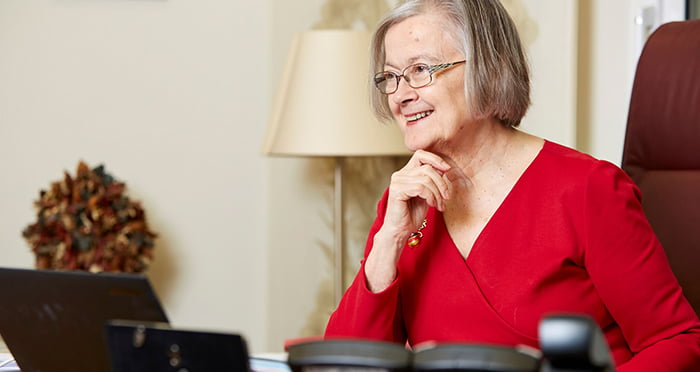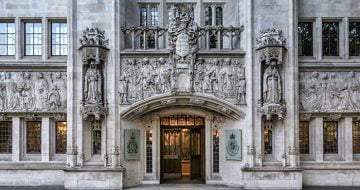Lady Hale, who’s hearing today’s case, is a vocal supporter of divorce law reform

The Supreme Court will today hear arguments from a 67-year-old woman desperate to break off her marriage, but can’t because of divorce laws.
Tini Owens has been married to hubby Hugh for 40 years, but during this time, she claims, he prioritised work over home life, made her feel unappreciated and suffered mood swings that caused “distressing” and “frequent” arguments. They’ve lived apart since February 2015.
Tini’s tried to obtain a divorce but, so far, hasn’t been successful. This is because under the Matrimonial Causes Act 1973 you need to prove fault, which can take the form of adultery, desertion or unreasonable behaviour. Tini cited the latter, unreasonable behaviour, in her divorce petition.
But judge Robin Tolson QC didn’t think her allegations against Hugh met the requisite threshold: he wasn’t sufficiently unreasonable. Sir James Munby, who sat alongside Lady Justice Hallett and Lady Justice Macur on appeal, said:
“Parliament has decreed that it is not a ground for divorce that you find yourself in a wretchedly unhappy marriage, though some people may say it should be. Such is the law which it is our duty to apply.”
Parties can also seek out a divorce if they have been separated for two years and both sides agree to the divorce. Hugh, the respondent, is not willing to consent.
Tini’s case has so far lost in the Central Family Court and the Court of Appeal, but there’s clearly momentum behind divorce law reform of late so that an unhappy wife or husband can get a divorce without having to prove “fault” in their other marital half.

In an interview with Legal Cheek in the wake of the Court of Appeal judgment, Tini’s lawyer, Philip Marshall QC, told us:
“Many people think the time has come for no-fault divorces. I would certainly support this. I hope that the unfairness of this decision will show parliament why law reform is necessary.”
Even Lady Hale, who will be hearing Owens today alongside her four colleagues, has said requiring one spouse to attribute blame on the other “adds needlessly to the anger, pain and grief felt by many” when their marriage breaks down. Provisions for no-fault divorce exist in the likes of Australia, Canada and the United States.
Marshall, Stephen Jarmain and Millie Benson — all from 1KBW — will be representing the appellant, Tini, today, when the five justices mull over their interpretation of the law on fault in divorce. Niger Dyer QC, 1 Hare Court, and Hamish Dunlop, 3PB, will represent Hugh. One intervener, Resolution, an organisation for family lawyers which supports no-blame divorces, will be giving written submissions.
The hearing is scheduled to last one day.

